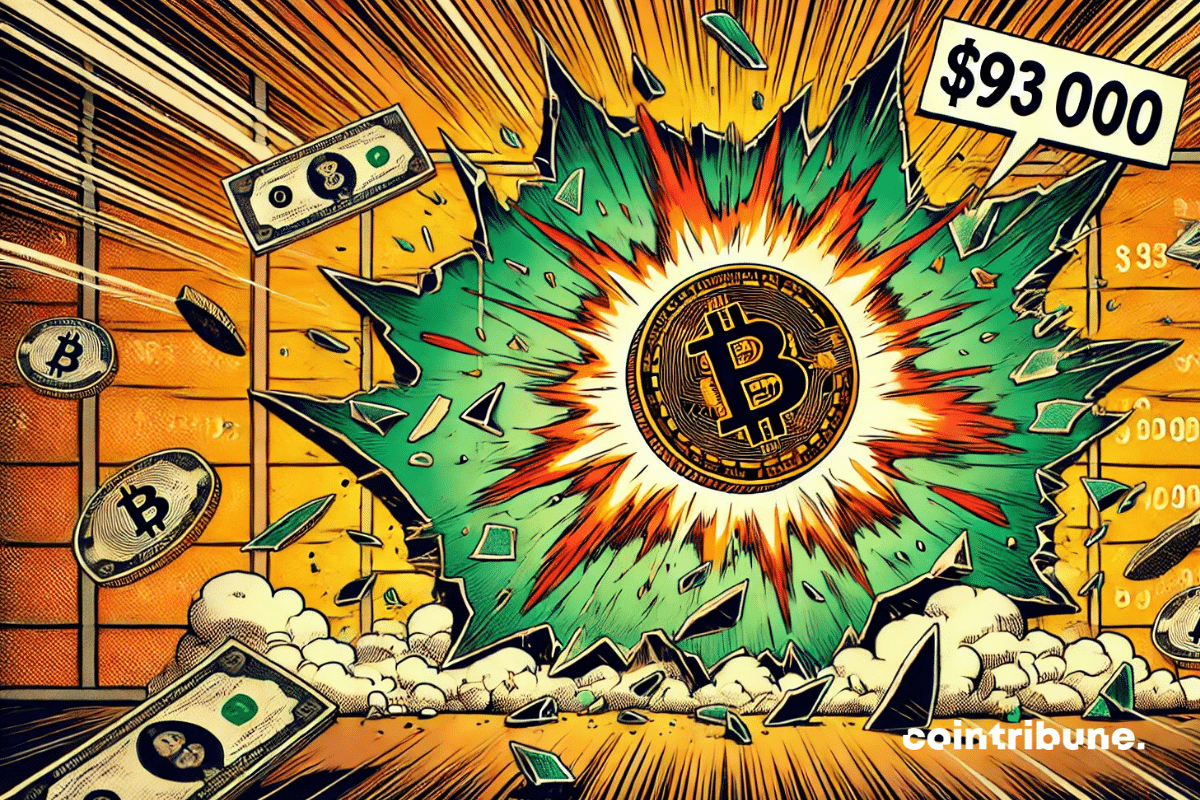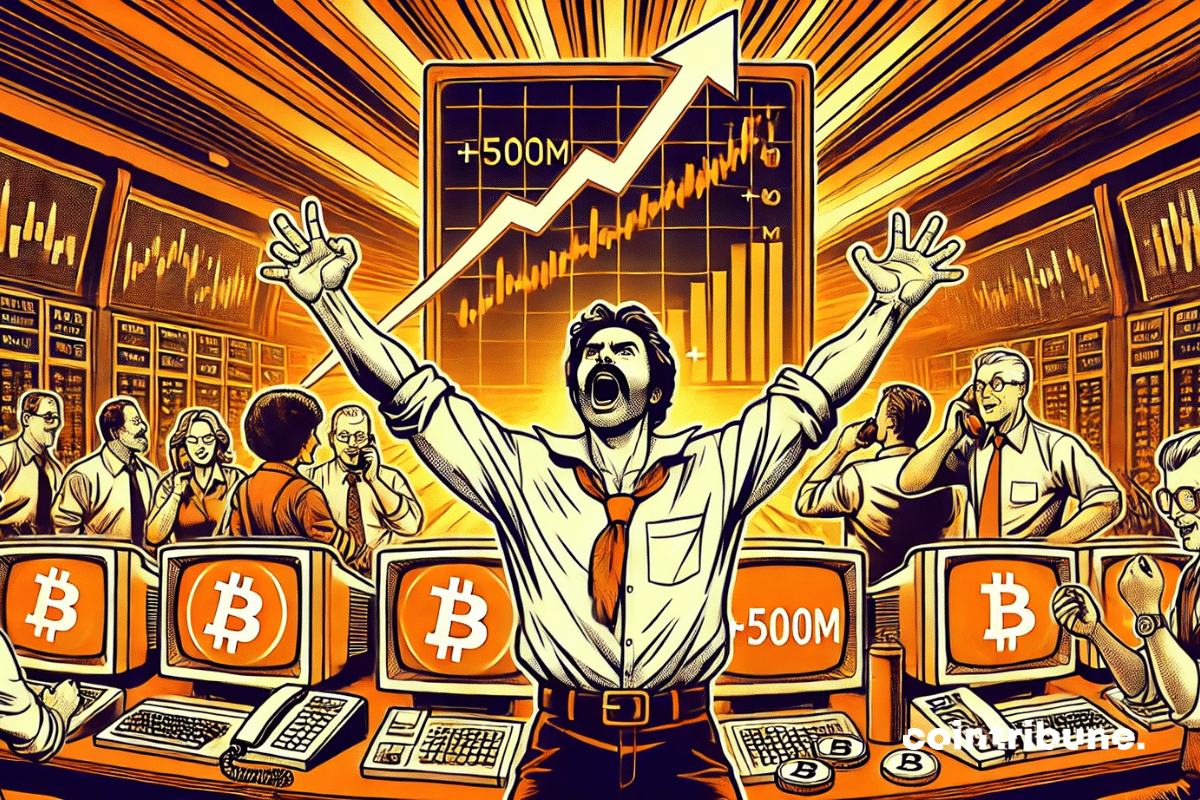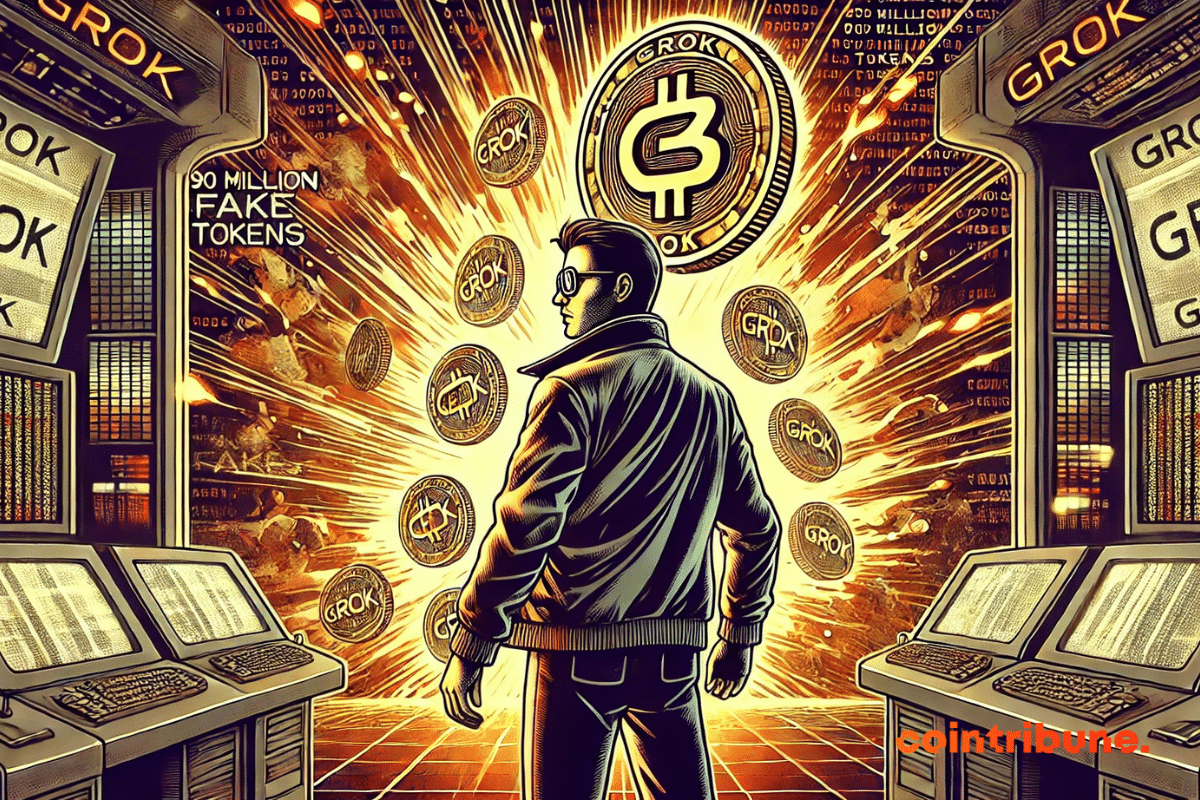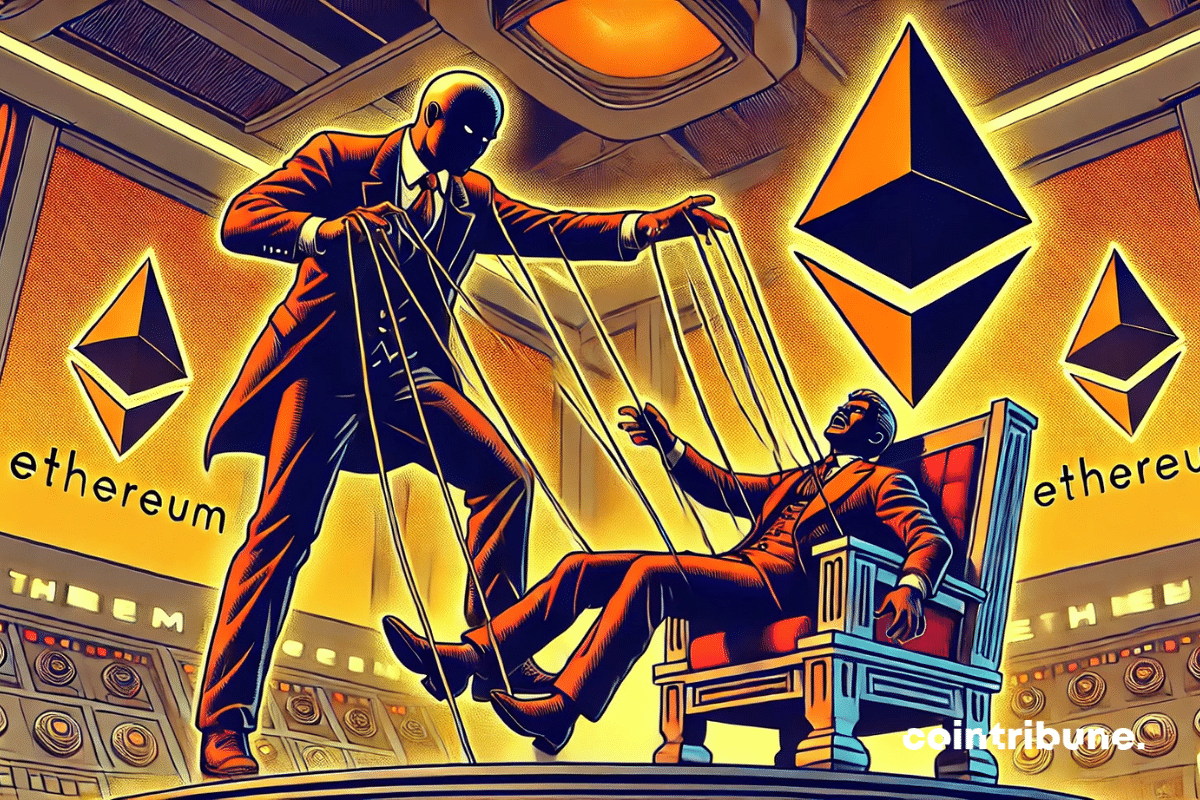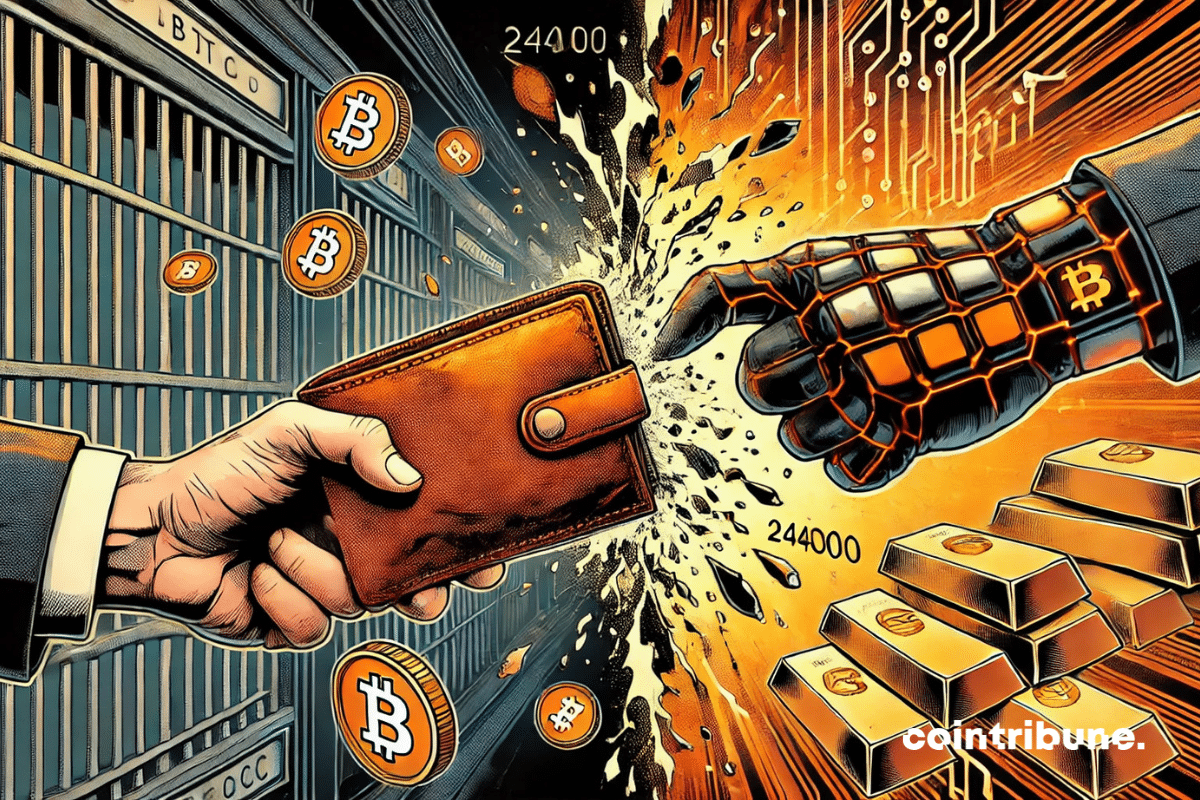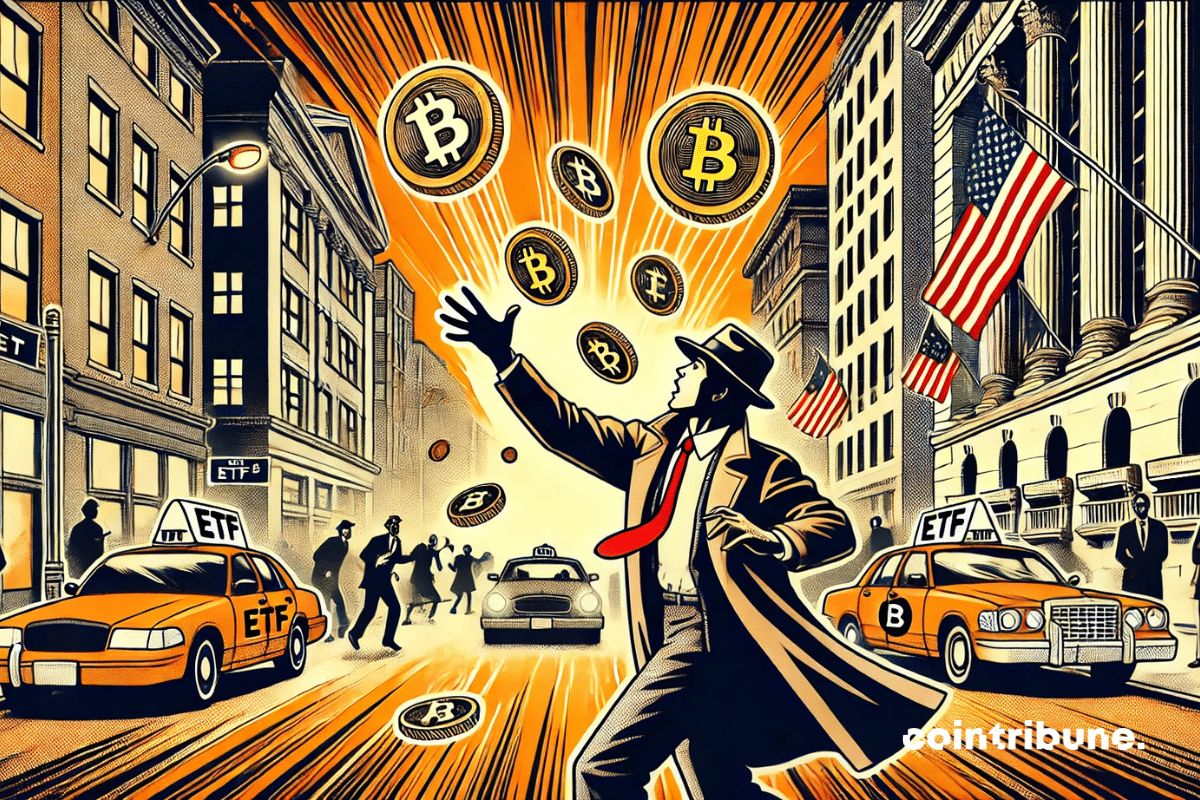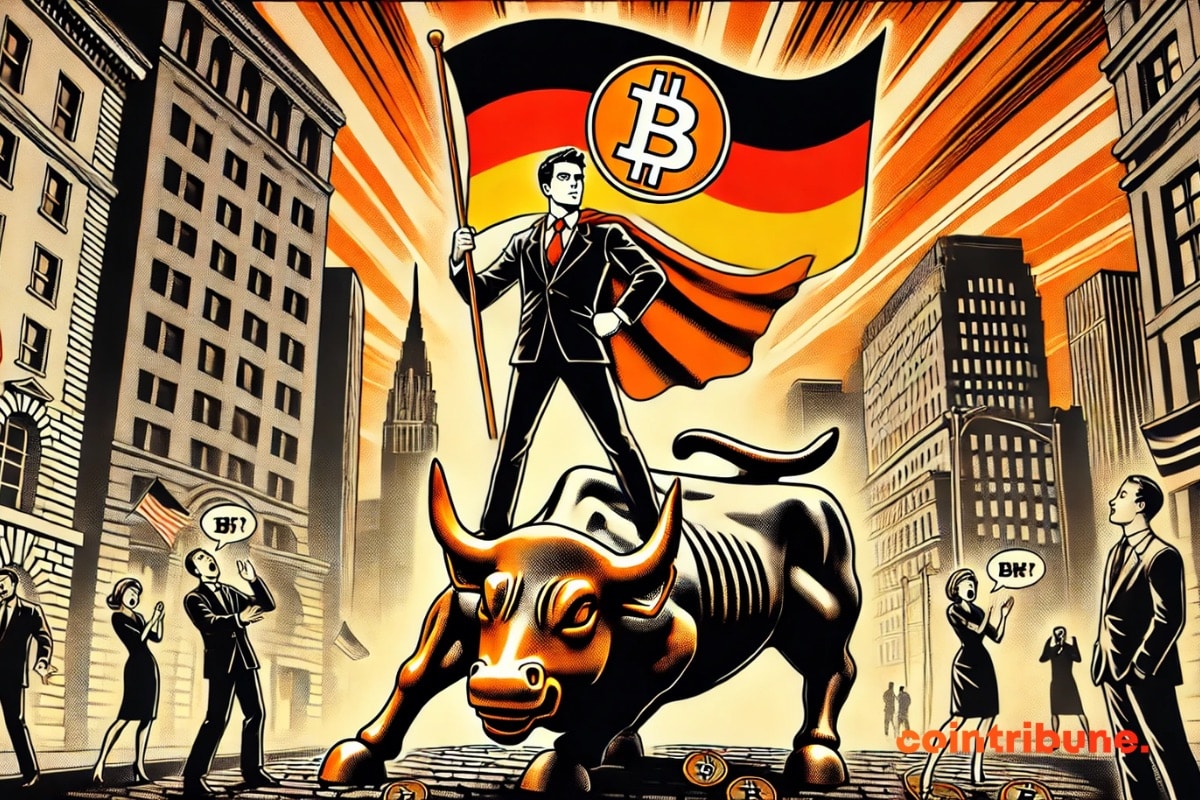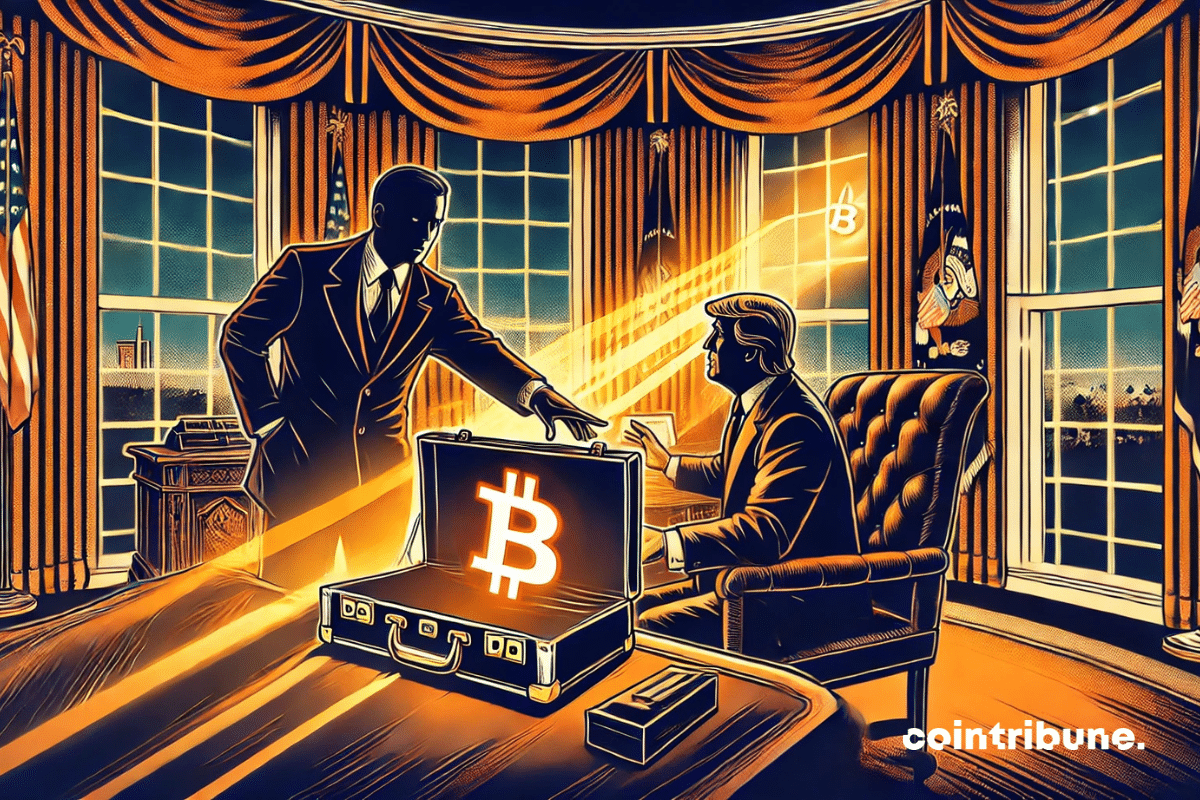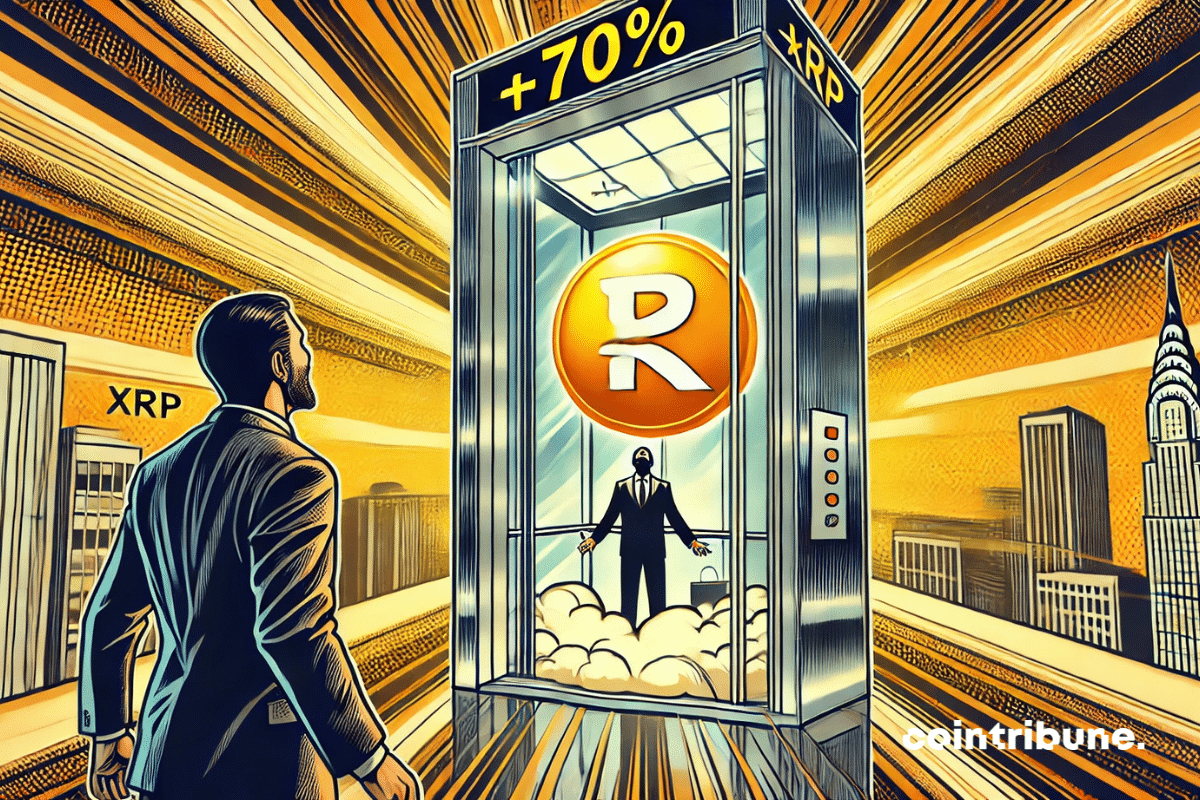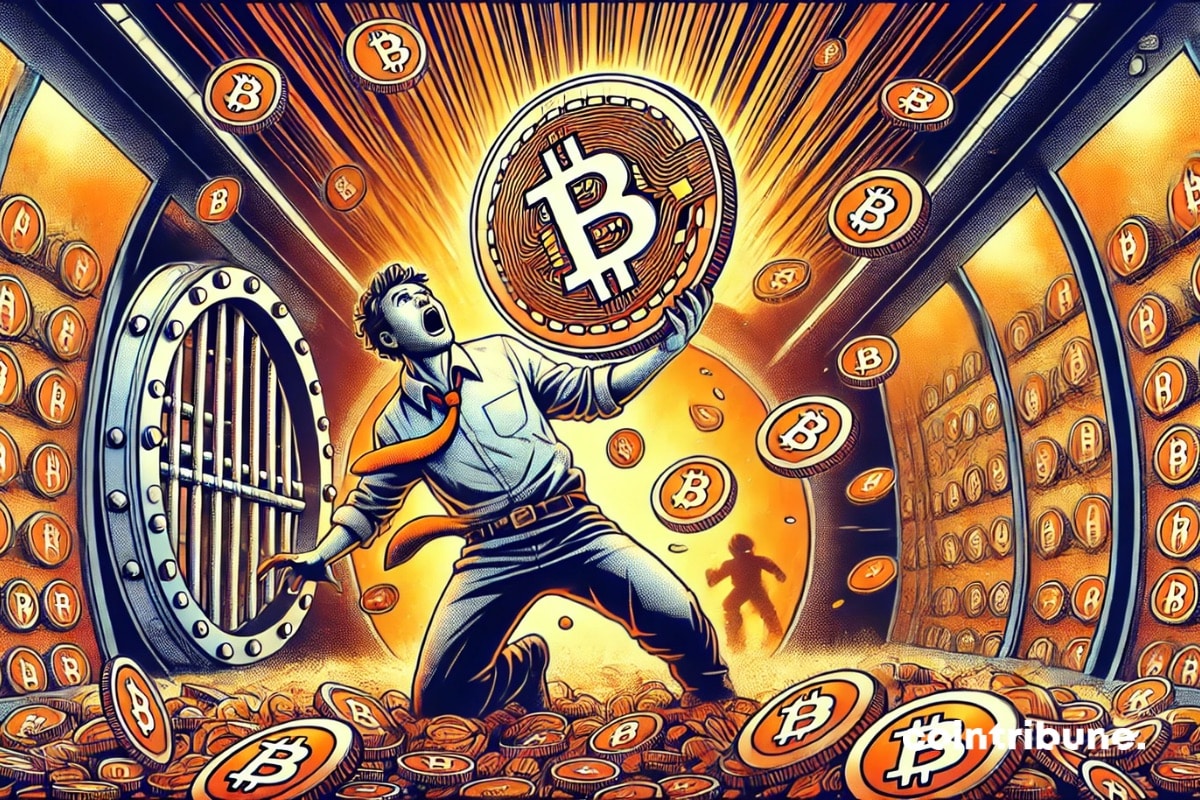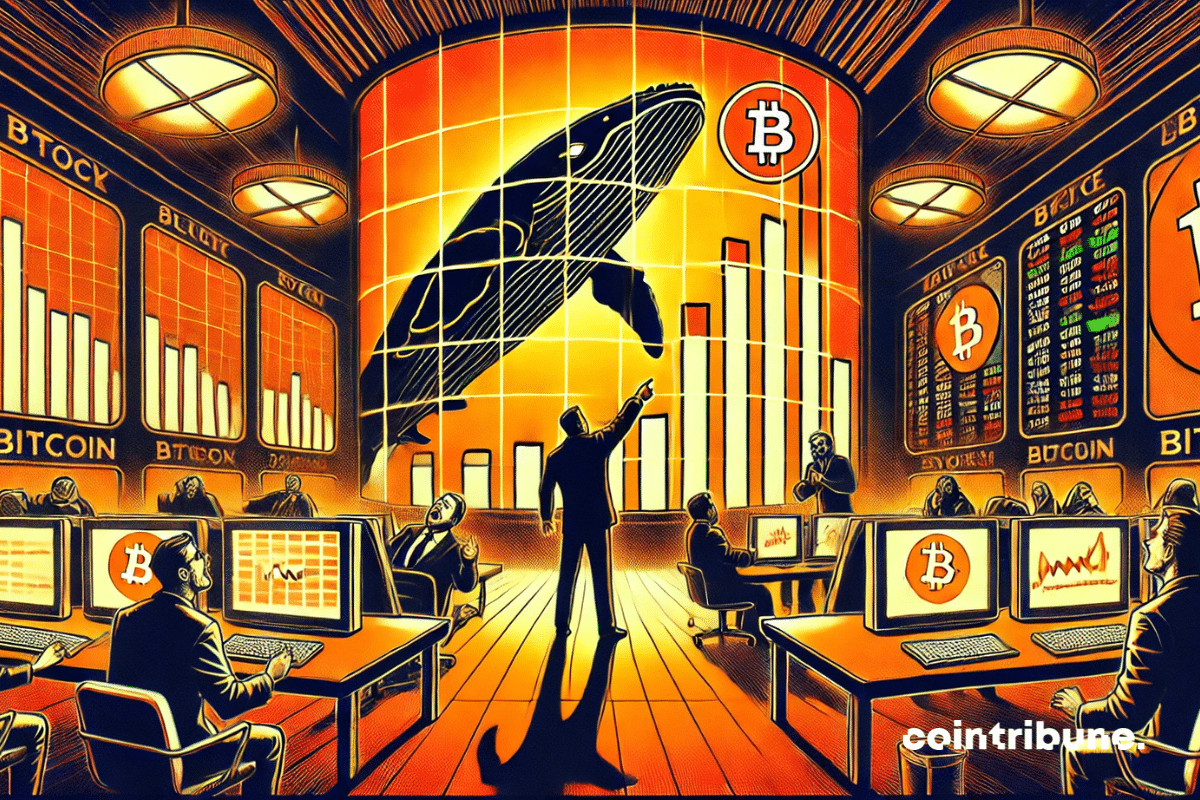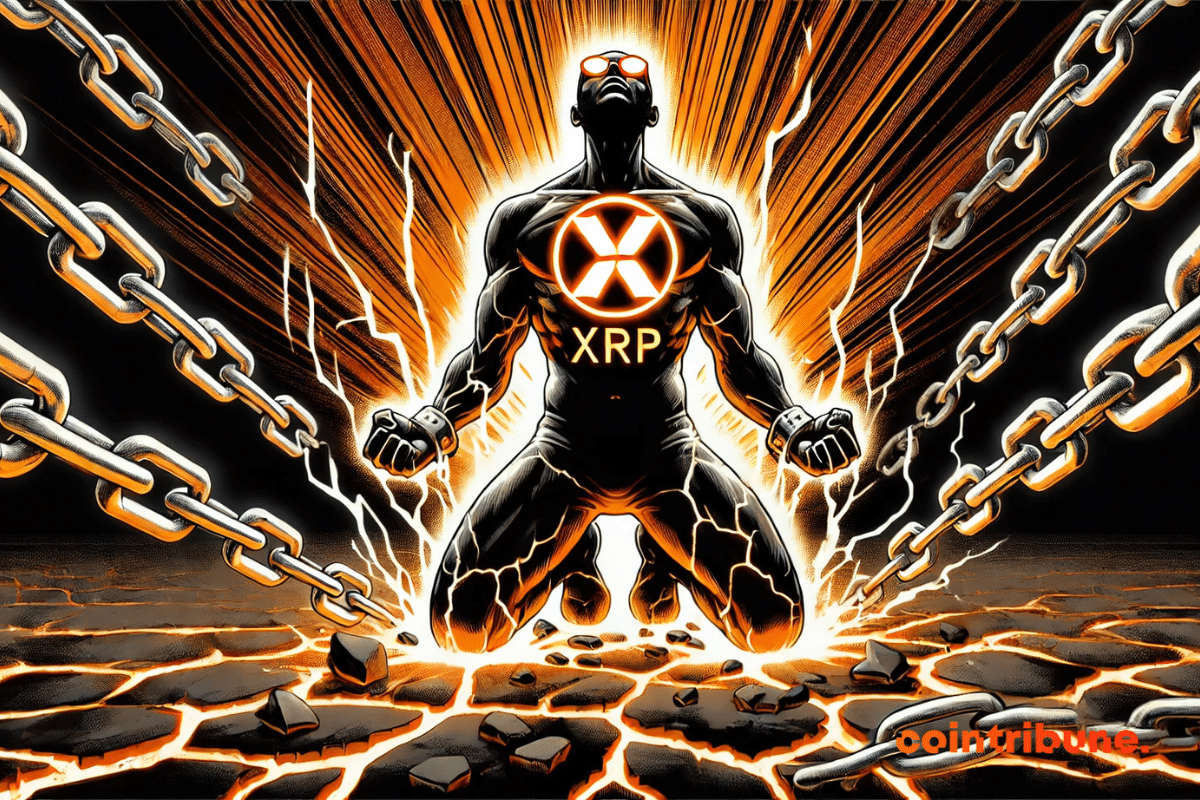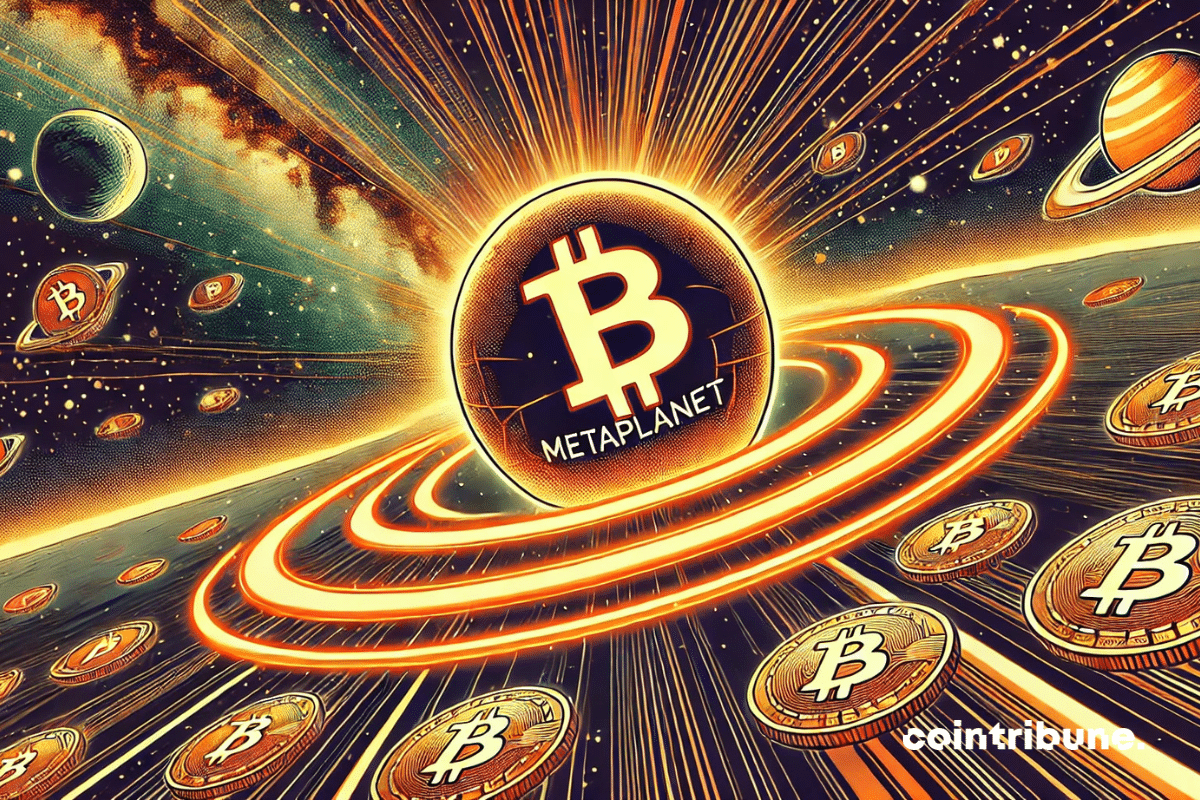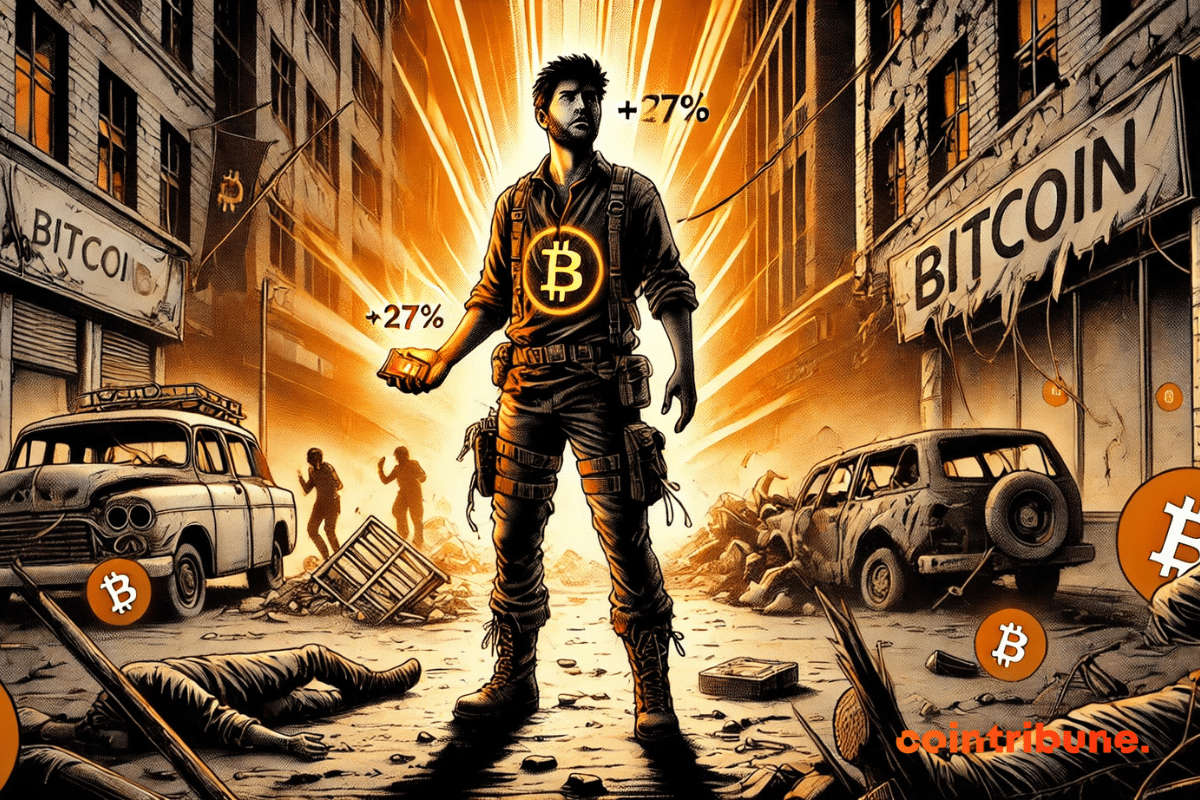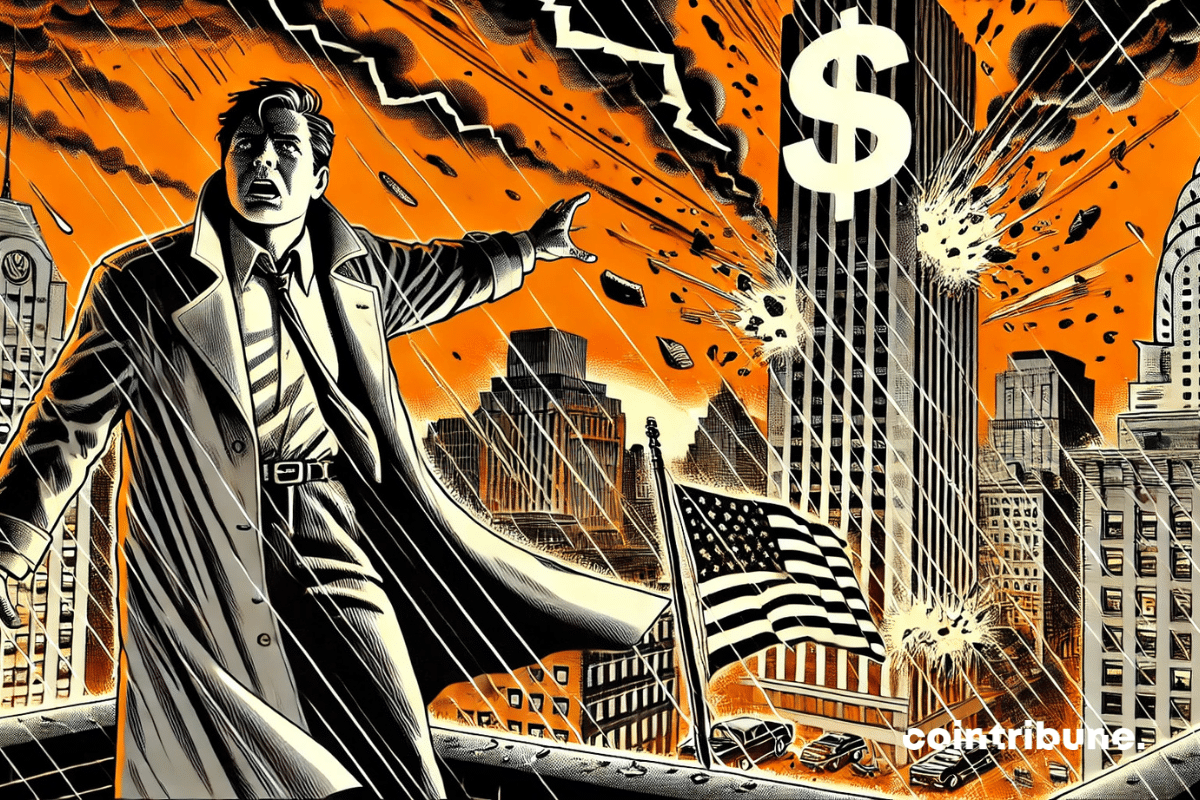Ethereum is regaining momentum. While its price struggles to bounce back, the network is witnessing an explosion of new users. With 1.83 million depositors in a week, the DeFi crypto star seems to be regaining the interest of investors. A strong signal that could indicate a trend reversal.
News
While Wall Street is emptying its pockets, Bitcoin is puffing its chest, flirting with the peaks and attracting billions — crypto is becoming the new refuge for capricious capital.
Bitcoin has just crossed the symbolic threshold of 90,000 dollars for the first time since early March, following a spectacular rally of nearly 20% from its low of 75,000 dollars. Has the upward train already passed, or is there still room for the flagship cryptocurrency to grow?
Grok AI spits out a coin name, scammers seize it, CZ pockets 90 million fake dollars, and crypto rediscovers that artificial intelligence sometimes rhymes with very real scams.
On Monday, April 21, 2025, a remarkable divergence appeared in the global financial markets. While American stocks were experiencing a sharp decline, the crypto sector showed impressive resilience, gaining 60 billion dollars in capitalization.
Jerome Powell, the chairman of the Federal Reserve (Fed), is facing increasing political pressure from Donald Trump, who is calling for an immediate reduction in interest rates. But Powell has no intention of yielding. Loyal to the independence of the institution he leads, he prefers to base his decisions on economic data rather than political demands.
Bitcoin has just surged to a new high of $90,444, confirming an explosive rally. This surge, supported by a massive drop in transaction fees, rekindles hopes for a prolonged bull run. Should we expect a new ATH in the coming weeks?
The economy is showing signs of fragility. The dollar is collapsing and gold is reaching a record high. Discover all the details in this article.
Ethereum is making a strategic shift that is both discreet and radical in the crypto universe. As the network prepares to face colossal technical challenges, its Foundation is reshuffling the balance of power. The goal: to free Vitalik Buterin from operational constraints and propel him towards uncharted horizons. A maneuver that could redefine the very DNA of blockchain, between unchecked ambition and calculated pragmatism.
At the tumultuous intersection of spirituality and speculation, a cryptocurrency named LUCE defies conventions. As the Vatican mourns the death of Pope Francis, this meme token, inspired by the mascot of the Holy Year 2025, emerges as a modern paradox. Between prayers and algorithms, the crypto community stirs, turning a sacred event into a financial playground. How could a simple cartoon trigger such a profane frenzy?
The year 2025 could mark a historic turning point for crypto ETFs in the United States. More than 70 funds are awaiting approval from the SEC, covering assets ranging from Bitcoin to memecoins. This momentum could transform institutional access to crypto, but there is no guarantee of success for all.
Paul Atkins officially takes the helm of the SEC and could change the game for the American crypto universe. Details here!
Gold continues to shine at $3,400 an ounce. A good omen for Bitcoin, which will inherit this fortune sooner or later.
Bitcoin ETFs based in the United States have recorded their largest daily inflows since January, as the crypto market regains its strength after a tough period.
What if saying "thank you" to an artificial intelligence cost millions? Sam Altman, CEO of OpenAI, reveals that polite phrases in requests made to ChatGPT weigh heavily on operational costs. Behind these seemingly innocuous human interactions lies an unexpected tension between friendliness and technical performance. This paradox raises critical questions about the design of AIs, their everyday uses, and the economic sustainability of an expanding model.
The tide is turning for traditional banks. According to a recent report, Deutsche Bank and Standard Chartered are currently exploring expansion opportunities in the crypto sector in the United States. This information, although not confirmed by those involved, is set against a backdrop of rapid transformation of the American regulatory environment, increasingly favorable to digital assets.
In January 2025, the crypto industry made massive donations to Trump's investment fund. A month later, the SEC miraculously dropped its lawsuits against those same donors. Coincidence or monetized political influence? The line between financial support and regulatory favoritism has never seemed so blurred.
Under pressure for several months, XRP is back on the market's radar. After a 40% decline from its peak of $3.40, the asset may be about to undergo a strategic turning point. Coinbase has just received the green light from the CFTC to launch XRP futures contracts, paving the way for a new phase of institutional legitimacy. In an environment where every technical or regulatory signal can tip the scales, this announcement re-ignites attention on this cryptocurrency.
The possible removal of the 10% tax allowance on retirement pensions is stirring public debate. Announced in a government note, the measure is as concerning as it is divisive. What was once just a budgetary avenue has now become a strong social marker, crystallizing tensions around taxation and the treatment of retirees. In a pressured economic climate, this potential reform raises a central question: how far can the State go without breaking the balance between generations?
As Bitcoin hovers around 85,000 dollars, Strategy, the company led by Michael Saylor, continues its ambitious accumulation strategy. In one week, the company invested over 550 million dollars to bolster its already colossal position in the queen of cryptos.
As the crypto market undergoes a phase of consolidation, major bitcoin holders – commonly referred to as "whales" – are significantly strengthening their positions, constituting one of the many bullish signals emerging at the end of April 2025.
Russia, an influential member of the BRICS bloc, has just crossed a historic monetary milestone: in February, more than half of its imports were settled in rubles. This strategic advancement, confirmed by the Central Bank, is part of a clear break with the dollar-dominated system. As tensions with the West escalate, Moscow is redirecting its trade towards partners deemed "friendly," thus redefining global financial balances and accelerating its trajectory towards strengthened economic autonomy.
XRP is about to emerge from its slumber. An extreme tightening of the Bollinger Bands alerts analysts: a volatility explosion is coming. The question remains in which direction.
While Wall Street stutters, Metaplanet, the crypto-yen samurai, stacks bitcoins like others stack Treasury bonds. Michael Saylor applauds. The Fed coughs in its corner.
Bitcoin surpasses 87,000 dollars again, dragging along altcoins BNB, SOL, and XRP. This bullish movement rekindles debates about its status as a safe haven asset, amid a backdrop of global economic instability.
Bitcoin is currently navigating through troubled waters. Below the symbolic threshold of $90,000, the landscape turns red for recent holders, while crypto veterans stay the course. Between technical corrections and discreet accumulation by institutions, the market sketches a complex map: that of a fragile balance between latent losses and tenacious confidence. A dive into the meanders of an asset that refuses to yield to fatalism, despite the storms.
While Trump plays the customs officer, Tesla wavers, Alphabet holds firm, and Wall Street takes on water. The markets, on the other hand, brace for the next presidential tweet.
Bitcoin is regaining strength by surpassing $87,000, marking its strongest increase since the end of March. This rise comes in an uncertain economic context, where gold and BTC are aligning as safe-haven assets against a weakened dollar. Is a bullish breakout underway?
Michael Saylor and his company Strategy continue their offensive on bitcoin. While the company reports more than $9 billion in unrealized gains, its founder hints at a new massive purchase. A strategy that could, according to some analysts, propel BTC up to $300,000.
As the bank failures of 2023 continue to shake the markets, economist Peter Schiff is fueling fears of a total collapse of the American financial system. Known for his attachment to gold, he warns that a recession of historic proportions is underway and that all banks are destined to fall. Thus, this radical diagnosis, issued in an already tense context, reignites the debate over the strength of financial institutions and the viability of economic policies pursued since the 2008 crisis.

